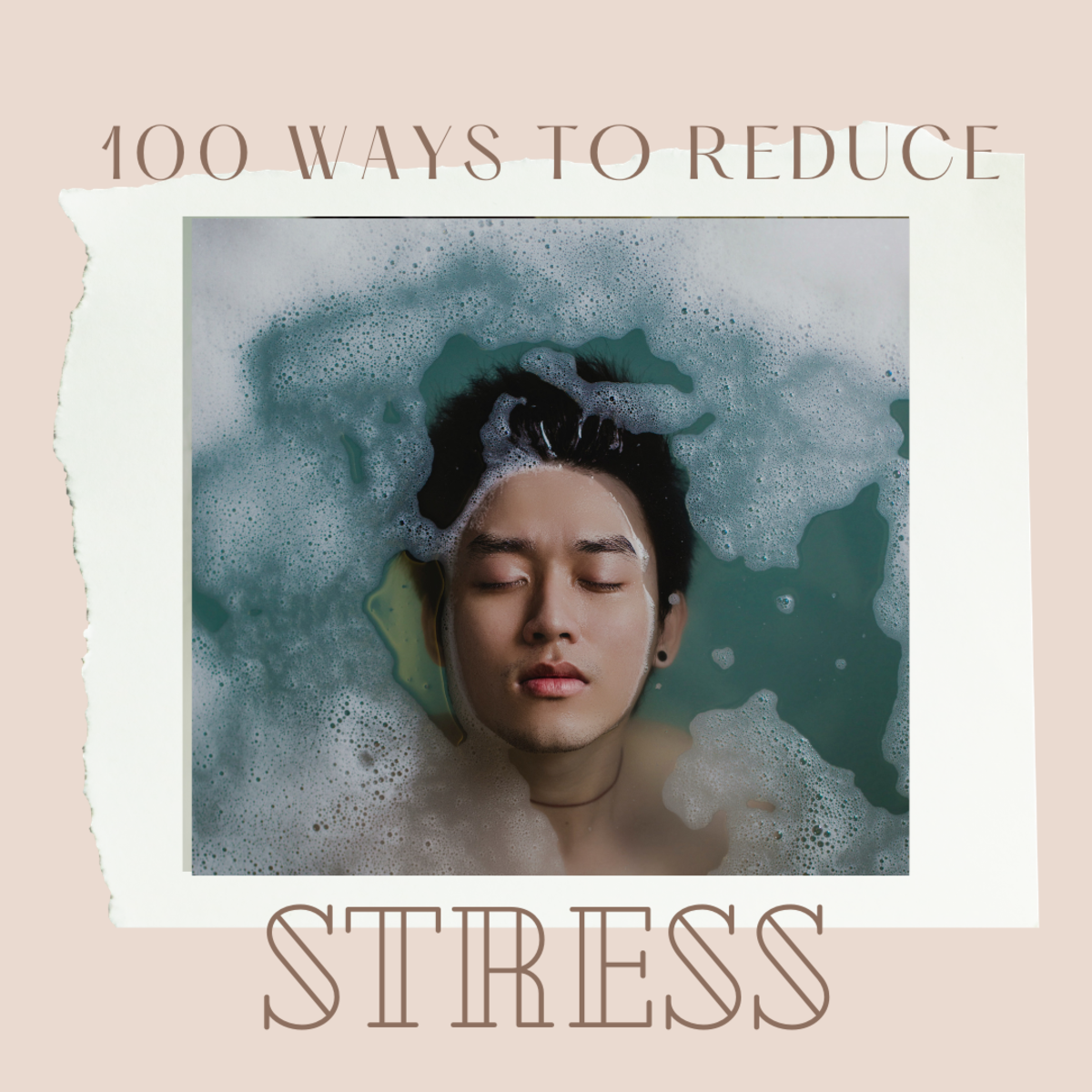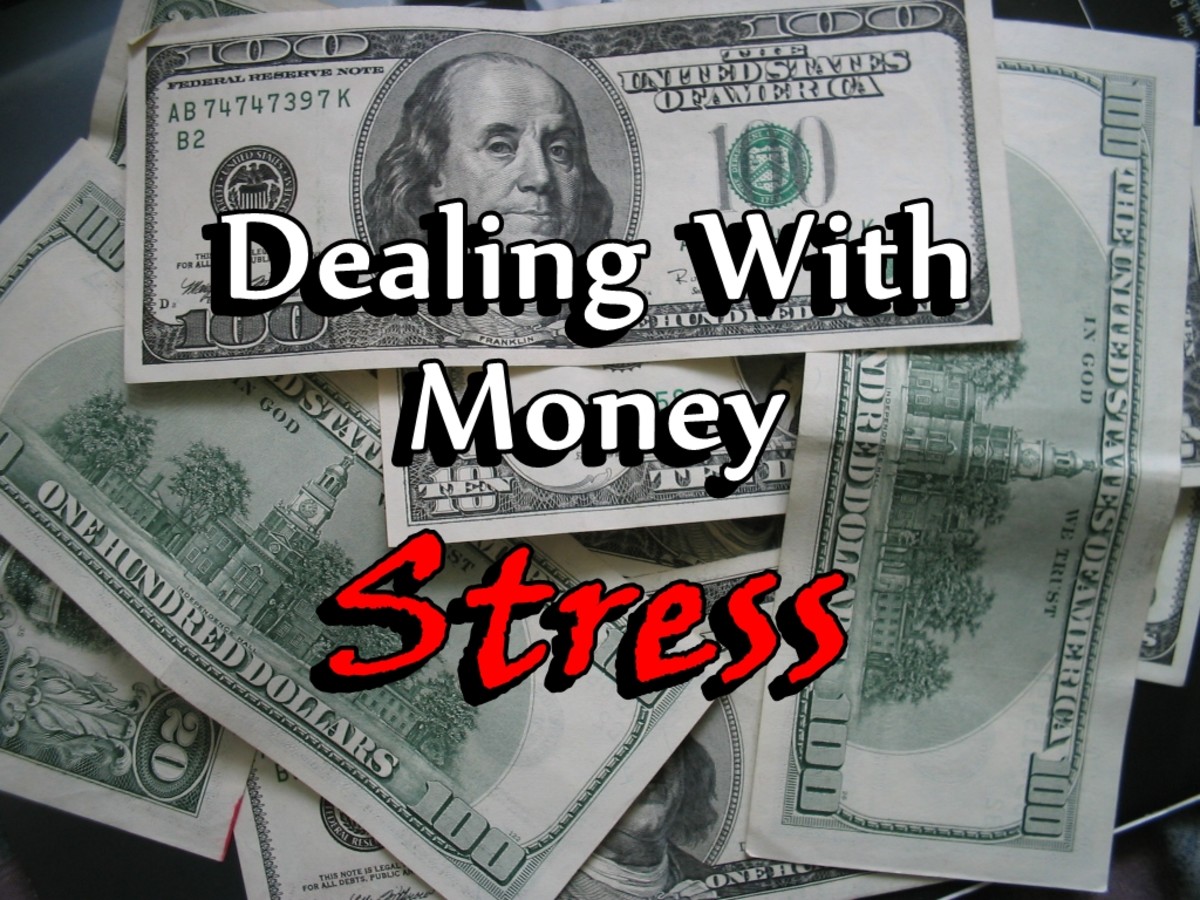- HubPages»
- Health»
- Mental Health»
- Stress Management
10 Tips to Handle Negative Stress
Let’s face it stress is an inevitable part of life yet so many of us struggle to manage it. We spend our time doing our utmost to run from it which only ends up causing us more stress. The truth of the matter is life would be pretty boring without some stress. Physiologist Dr Hans Selye distinguished between positive stress which he called eustress and negative stress known as distress. Minimising distress, as well as creating some eustress can help you feel a whole lot better. Here are some tips to help you do just that.

1.) Find the right job
Work is a huge source of stress for many people. Workloads, deadlines, bosses and co-workers can leave us wanting to pull our hair out. Figures show that the average person spends 90,000 hours at work throughout their lives. Now that is a lot of time spent working, especially if you hate your job. Research by the London School of Business and Finance found that almost half of the British workforce are unhappy in their jobs, for Millennials it is closer to three quarters. That's a lot of unhappy Brits spending most of their waking hours doing jobs that they just don't want to do. This is bound to cause negative stress which can easily spiral into anxiety.
It is worth taking the time to find out what you really like to do and find work that is more aligned with that. Many people stay in jobs they don't like just for the paycheck. They may not even know what kind of job they'd like. No job is perfect, but going to work shouldn't cause you so much stress that you dread waking up in the morning.
Most of us aren't in the position to just up and quit our jobs, but we can always research different career paths and fill in some applications. Taking positive action will make you feel better, and even create some eustress when you line up some interviews.
2.) Stop catastrophising..
Inspirational author Dan Zadra famously said that “worry is a misuse of your imagination”. Worrying about everything that can go wrong is known as catastrophizing, it is a common thinking error identified in Cognitive Behavioural Therapy (CBT). CBT is based on the idea that your thoughts create your feelings, which shape the way you behave. Essentially, we create the way we feel by the thoughts we think. Instead of thinking about everything that could go wrong, why not try thinking about what could go well.
3.) Stop worrying about what you can't control...
There are aspects in life that we can control and many aspects that we can't. For example, if you have an exam looming, you can make sure you do well by studying hard. This gives you some control. On the other hand, If a co-worker takes a dislike to you despite you being friendly, helpful and polite to them, this is something you can’t control. Worrying about not being liked by them wastes your energy and puts you under unnecessary stress, so why do it? Focus your energy on things you have control over.
4.) Don't go it alone...
When I’m stressed I tend to shut off from people preferring to isolate myself. I worried about giving off a negative vibe to the people around me, and them being repelled by it.
Shutting people out when you’re stressed is not a good idea. Doing the opposite by spending time with trusted friends and avoiding isolation is more likely to boost your mood.
Human beings are social animals, and not having enough meaningful connections with other people can be very damaging. A study by John Cacioppo from the University of Chicago found that loneliness increases levels of stress hormones and can even raise your blood pressure. Cutting yourself off only causes more stress. The bottom line is people need people, so reach out.
Loneliness has been proven to cause negative stress. Reach out to others when you need support.
5.) Stop people pleasing...
As much as we need relationships in our lives, they can often cause us a lot of stress. This is especially the case when we put the needs of others before our own. As much as you love your spouse, mum, dad, brother, sister or cousin twice removed, you need to take care of yourself before you can help them. You are no use to anyone if you’re stressed and burned out. Sometimes you just have to say no.
Chronic people pleasing only makes you resent people and lose respect for yourself. You will save yourself unnecessary stress by only saying yes to things you actually want to do.
6.) Don't put too much on your plate...
Society attributes being busy to being successful. If you don't work forty hours a week, have multiple hobbies, attend after work drinks, and have a diary packed full of exciting social events you're apparently failing at life.
This is a lot of pressure to put on yourself. It's great that you're living a full life, but if you're doing too much and finding yourself exhausted it is perfectly OK to stop and rest.
Schedule at least one day a week to do nothing and spend the day relaxing. You’re not lazy or boring if you spend the odd Sunday sprawled out on the sofa
7.) Get enough sleep...
Trying to navigate your way through your day when you've only had four hours sleep is like trying to drive from London to Aberdeen without any petrol in your tank, ultimately you're going to breakdown.
It is impossible to function effectively when you're sleep deprived. Your cognitive abilities decline, and you'll generally be slow and sluggish. Try to get to bed at a decent hour so you can get at least eight hours of uninterrupted sleep. If this means cutting down your Game of Thrones binge to two episodes instead of eight, so be it.
8.) Don't procrastinate....
We are all guilty of putting off tasks we don't want to do until the last minute. This is a bad habit that needs to be broken because it stresses us out.
Try to get the tasks that you know you need to do early. If you have a bill to pay, pay it as soon as possible so it is out of your way. You can then feel more relaxed without it niggling in the back of your mind.
9.) Meditate or pray...
Many have spoken about the transformative effect that meditation has had on their emotional health.
The act of taking as little as five minutes just to sit down, breath deeply, and notice your thoughts can help you feel a lot calmer. There is a wealth information online that can teach you how to meditate as well as several apps to help you get started. Why not try it and see if it works for you?
If you're religious, you may find some peace of mind through prayer or chanting. Your current situation may end up strengthening your faith.
10.) Look after your health...
This goes without saying. It is impossible to feel relaxed and able to handle life if your health is out of whack.
I’m not the first, and I won't be the last to stress the importance of exercise. The NHS recommends that you get 150 minutes of moderate exercise per week. This equals out as thirty minutes over five days. Exercise will help you to release any negative emotions, and it is a form of eustress.
When we're stressed out we crave junk food, especially sugar and fat. Hello, cakes, chocolate and potato chips, bye-bye anything green. We need to resist fuelling our bodies with empty calories, caffeine, alcohol, and tobacco. Eating a balanced diet of macro and micronutrients such as lean protein, unprocessed carbs, healthy fats and a range of fruits and vegetables will work wonders for your wellbeing.
Stress is always going to be part of life; there is no escaping it.
Hopefully, these tips will help you manage it a little better. How do you manage stress? Share your thoughts.

On average we spend 90,000 hours at work over a lifetime.

Sources
https://www.stress.org/what-is-stress/
https://www.lsbf.org.uk/infographics/career-change
https://www.psychologytoday.com/gb/articles/200307/the-dangers-loneliness
https://www.nhs.uk/conditions/cognitive-behavioural-therapy-cbt/
https://www.nhs.uk/live-well/exercise/
© 2019 Suzette-Annan








